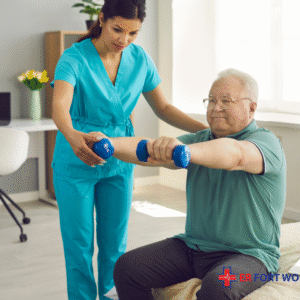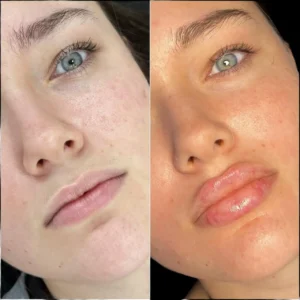Feeling constantly drained while also experiencing a persistent chill can be frustrating and worrisome. Experiencing extreme fatigue and low body temperature may point to underlying health issues, nutritional deficiencies, or lifestyle factors that need attention. Understanding the causes is the first step toward regaining energy and comfort.
Why Fatigue and Cold Often Happen Together
Your body’s energy levels and temperature regulation are deeply interconnected. When metabolism slows, blood flow decreases, or hormone levels are off balance, it can result in extreme fatigue and low body temperature. Even small changes in nutrition, thyroid function, or circulation can leave you feeling tired and cold.
How Your Body Produces Heat and Energy
Your body generates heat through metabolism, which converts food into energy. When metabolism is slowed due to medical conditions or nutrient deficiencies, your cells produce less energy, and your body struggles to maintain warmth. This often explains why fatigue and feeling chilly occur together.
Common Medical Causes to Investigate
1. Hypothyroidism: Low Thyroid Function
The thyroid gland regulates both energy production and body temperature. An underactive thyroid, or hypothyroidism, can significantly lower your metabolism, causing:
- Persistent fatigue
- Sensitivity to cold
- Dry skin and brittle hair
- Unexplained weight gain
If these symptoms persist, a simple blood test can help determine thyroid hormone levels.
2. Iron-Deficiency Anemia
Iron is essential for making hemoglobin, which carries oxygen throughout the body. Low iron reduces oxygen delivery, leaving your body fatigued and cold. Signs include:
- Weakness and dizziness
- Pale skin or lips
- Cold hands and feet
- Shortness of breath during minor activity
Iron-rich foods and supplementation can often correct this, but medical guidance is important.
3. Hormonal Imbalances
Hormones such as cortisol, estrogen, and progesterone influence energy levels and body temperature. Low hormone levels, common during menopause or adrenal fatigue, may lead to extreme fatigue and low body temperature.
Additional indicators include:
- Mood swings
- Trouble sleeping
- Sudden weight changes
4. Nutritional Deficiencies
Beyond iron, deficiencies in Vitamin B12, Vitamin D, and magnesium can contribute to fatigue and cold sensitivity. These nutrients are critical for energy production, nerve function, and warmth regulation.
5. Chronic Illnesses or Infections
Certain infections, autoimmune disorders, and chronic conditions like diabetes can leave your body constantly fighting itself, reducing available energy and impairing temperature regulation.
Lifestyle Factors That Amplify Fatigue and Chills
Even without medical conditions, lifestyle can play a significant role in extreme fatigue and low body temperature.
Sleep Quality Matters
Poor sleep prevents your body from restoring energy and regulating hormones. Chronic sleep deprivation can leave you exhausted and more sensitive to cold.
Sedentary Lifestyle
Limited movement reduces circulation, which decreases heat production and worsens fatigue. Regular light exercise can help your body maintain warmth and energy.
Stress and Mental Fatigue
High stress elevates cortisol, disrupting metabolism and making it harder to generate energy and maintain normal body temperature. Mindfulness practices and deep-breathing exercises can reduce stress and improve energy.
Diet and Blood Sugar Fluctuations
Irregular meals, low-calorie diets, or high sugar intake can create blood sugar swings, leaving you tired and chilly. Balanced meals with protein, healthy fats, and complex carbs are essential for energy stability.
Practical Steps to Check and Improve Your Energy
Monitor Key Symptoms
Keep track of your fatigue, body temperature, and related symptoms like dizziness, weight changes, or hair loss. This record helps healthcare providers identify causes quickly.
Nutritional Adjustments
- Include iron-rich foods like spinach, lentils, and lean meats
- Add B12 and Vitamin D sources such as eggs, fish, and fortified foods
- Stay hydrated to support metabolism
Improve Sleep and Stress Management
- Maintain a regular sleep schedule
- Avoid stimulants like caffeine before bedtime
- Use relaxation techniques like yoga or meditation
Gentle Physical Activity
- Start with short walks or stretching routines
- Gradually increase intensity to improve circulation
- Exercise indoors during cold seasons to preserve warmth
Seek Professional Evaluation
Persistent extreme fatigue and low body temperature may indicate thyroid issues, anemia, or hormonal imbalances. A medical evaluation with blood tests and health assessment is the most effective way to pinpoint the cause.
Red Flags You Should Not Ignore
Certain symptoms alongside fatigue and chills may require immediate attention:
- Severe or worsening fatigue that affects daily life
- Rapid weight loss or gain without reason
- Fainting, dizziness, or severe cold intolerance
- Persistent paleness or blue extremities
Early detection and treatment of underlying conditions can prevent long-term complications.
Steps You Can Take Today
While awaiting professional guidance, you can make small changes to reduce fatigue and cold sensations:
- Eat warm, nutrient-dense meals
- Dress in layers and use heated blankets or warm drinks
- Move periodically to boost circulation
- Manage stress through meditation, journaling, or breathing exercises
Final Takeaway on Restoring Energy and Warmth
Experiencing extreme fatigue and low body temperature is often more than just feeling tired or chilly—it may signal deeper health concerns. Understanding potential causes, making small lifestyle adjustments, and consulting healthcare providers are essential steps to regain energy, warmth, and vitality. Taking action now can help restore comfort and improve overall quality of life.



